Welcome to Citizen Scholar! Since launching two months ago we’re reaching hundreds of people a week, so we thank you for your support. If you enjoy our writing on civic virtue and individual excellence, we humbly ask you to share Citizen Scholar with your family members and friends who may enjoy it. The contents of the audio and text formats are identical and meant to accommodate your preferences. Please let us know if you have any feedback - we’re always looking for ways to improve!
Introduction
Americans celebrate the Thanksgiving holiday this week, and we thought it a fitting time to discuss a classic penned by a Founding Father of the United States. Benjamin Franklin (1706-1790) died before completing his memoirs, which were posthumously collected into The Autobiography of Benjamin Franklin. The book tells the story of Franklin’s rise from relative obscurity in colonial Boston to the Philadelphian polymath and statesman he’s remembered as today.
Franklin passed away before reaching the part of the story covering the American Revolution, although the grievances that would ultimately spark it appear in his telling of time served in Pennsylvania’s colonial government. Notably, he advocated for the colonies’ rights to their own legislative power and was dismayed by the conduct of British soldiers toward colonists during the French and Indian War. The richer parts of the story however, detail Franklin’s ascent in life.
Benjamin Franklin’s Story Pre-Revolution
As the fifteenth of seventeen children born to a Boston candlemaker, Franklin would need to be independent in life. His father couldn’t afford to give him more than basic schooling, and so most of his education was self-taught. To read his recounting of the joys of reading titles like Plutarch’s Parallel Lives of the Noble Greeks and Romans and other books as a kid is to recognize a fellow traveler of those who enjoy Citizen Scholar.
At twelve years old, Franklin was apprenticed to his brother James in order to learn the skilled trade of a printer. He got his start in journalism by taking over his brother’s newspaper when James was imprisoned for upsetting local leaders with his articles. Young Ben Franklin sharpened his wit with the retaliatory articles he published during this brief dominion over the newspaper. While this pleased his brother, they would eventually fall out after James was eventually released. Chafing under his brother’s authority, Franklin escaped his indentured servitude and was blackballed from employment in any other Boston printing houses.
Forced to make his own way in the world without money or connections, Franklin left Boston and eventually ended up in Philadelphia. He put down roots in Philadelphia, where much of the rest of the story recounts his working for other printers until he could profitably go into business for himself, building strong connections until he could be impactful in government and civil society and developing his own religious, moral and political philosophies.
The Autobiography’s Significance
The Autobiography of Benjamin Franklin was widely read on both sides of the Atlantic, and in the nineteenth century it became a standard text used for the moral development of children, especially boys. Young readers were thought to benefit from the story of Franklin’s rise from obscurity to prominence via discipline and hard work, as well as from the development of his worldview. His book recounts flirtation with and rejection of atheism, as well as the acquisition of virtue via repeated habit.
“I concluded, at length, that the mere speculative conviction that it was our interest to be completely virtuous, was not sufficient to prevent our slipping; and that the contrary habits must be broken, and good ones acquired and established, before we can have any dependence on a steady, uniform rectitude of conduct.
…
These names of virtues, with their precepts, were:
1. Temperance Eat not to dullness; drink not to elevation.
2. Silence. Speak not but what may benefit others or yourself; avoid trifling conversation.
3. Order. Let all your things have their places; let each part of your business have its time.
4. Resolution. Resolve to perform what you ought; perform without fail what you resolve.
5. Frugality. Make no expense but to do good to others or yourself; i. e., waste nothing.
6. Industry. Lose no time; be always employ'd in something useful; cut off all unnecessary actions.
7. Sincerity. Use no hurtful deceit; think innocently and justly; and, if you speak, speak accordingly.
8. Justice. Wrong none by doing injuries, or omitting the benefits that are your duty.
9. Moderation. Avoid extreams; forbear resenting injuries so much as you think they deserve.
10. Cleanliness. Tolerate no uncleanliness in body, cloaths, or habitation.
11. Tranquillity. Be not disturbed at trifles, or at accidents common or unavoidable.
12. Chastity.
13. Humility. Imitate Jesus and Socrates.”
This formula is essentially evergreen for those who care about civic virtue in a free society; it’s also emblematic of a man who was both of Puritan New England and of the Enlightenment. One of the most interesting aspects of the book is to see how an individual in Franklin’s time and place thought and experienced the world, or at least how they wanted to be perceived to do so. Franklin achieves this in a way that’s still relatable. See for example:
On college education:
“But my father, in the meantime, from a view of the expense of a college education, which having so large a family he could not well afford, and the mean living many so educated were afterwards able to obtain—reasons that he gave to his friends in my hearing—altered his first intention, took me from the grammar-school, and sent me to a school for writing and arithmetic…”
On trying and failing to get one’s life together, and making peace with failure:
“This article, therefore, cost me so much painful attention, and my faults in it vexed me so much, and I made so little progress in amendment, and had such frequent relapses, that I was almost ready to give up the attempt, and content myself with a faulty character in that respect, like the man who, in buying an ax of a smith, my neighbour, desired to have the whole of its surface as bright as the edge. The smith consented to grind it bright for him if he would turn the wheel; he turn'd, while the smith press'd the broad face of the ax hard and heavily on the stone, which made the turning of it very fatiguing. The man came every now and then from the wheel to see how the work went on, and at length would take his ax as it was, without farther grinding. "No," said the smith, "turn on, turn on; we shall have it bright by-and-by; as yet, it is only speckled." "Yes," says the man, "but I think I like a speckled ax best." And I believe this may have been the case with many, who, having, for want of some such means as I employ'd, found the difficulty of obtaining good and breaking bad habits in other points of vice and virtue, have given up the struggle, and concluded that "a speckled ax was best"; for something, that pretended to be reason, was every now and then suggesting to me that such extream nicety as I exacted of myself might be a kind of foppery in morals, which, if it were known, would make me ridiculous; that a perfect character might be attended with the inconvenience of being envied and hated; and that a benevolent man should allow a few faults in himself, to keep his friends in countenance.
In truth, I found myself incorrigible with respect to Order; and now I am grown old, and my memory bad, I feel very sensibly the want of it. But, on the whole, tho' I never arrived at the perfection I had been so ambitious of obtaining, but fell far short of it, yet I was, by the endeavour, a better and a happier man than I otherwise should have been if I had not attempted it; as those who aim at perfect writing by imitating the engraved copies, tho' they never reach the wish'd-for excellence of those copies, their hand is mended by the endeavour, and is tolerable while it continues fair and legible.”
In spite of the dry humor Franklin included amongst the “humble-bragging” and moralizing, many have since taken issue with the once-common practice of teaching his book to children. Mark Twain once wrote that Franklin’s writing was “full of animosity toward boys” and “worked up with a great show of originality out of truisms that had become wearisome platitudes as early as the dispersion from Babel.” We were once taken with Christopher Hitchens’ contention that Franklin’s work was satire with hidden meanings; that he didn’t actually believe in God or in puritanical morality but was instead ridiculing them. We no longer believe that the text itself supports this. For us, Franklin hit a satisfying note of telling a story arguing for a compelling set of virtues while mixing in dry comic relief throughout. If you’ve read this book – especially if you were put through it in school – let us know your thoughts!
All the best,
The Citizen Scholar Team
P.S. If you made it this far & enjoyed the post, could you please let us know by giving the heart button below a tap? Thank you!




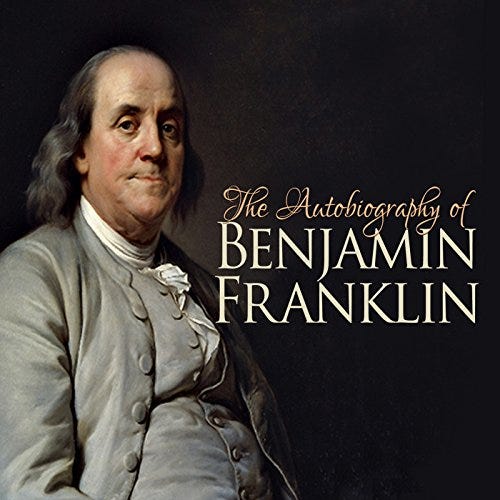



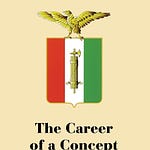
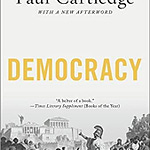

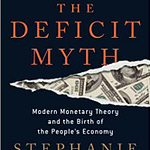
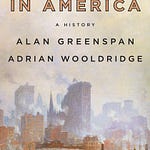
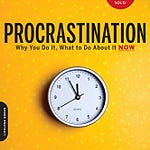
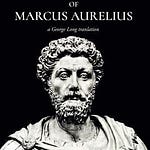
Discussion #16: The Autobiography of Benjamin Franklin, by Benjamin Franklin